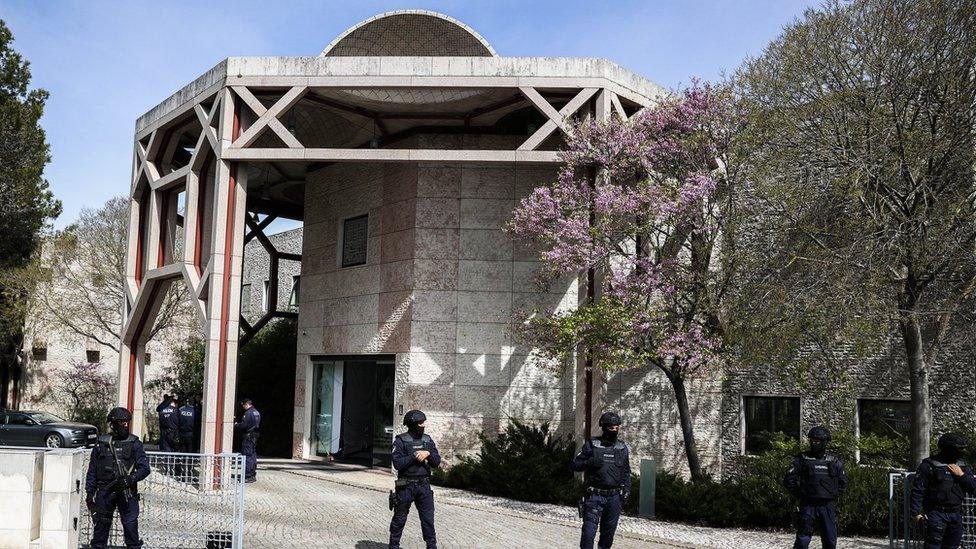Lisbon stabbing: Two women killed at Ismaili Muslim centre
- Published

Two people were killed in the attack on Tuesday
Two women have been stabbed to death at a Muslim religious centre in the Portuguese capital Lisbon.
The attack took place at the Ismaili Centre on Avenida LusĆada. The suspect, who was in possession of a large knife, was shot in the leg by police.
He was then detained and taken to hospital. The motive for the attack on Tuesday is not clear.
Police said they received a call at about 11:00 local time after the suspect entered the centre.
Officers asked the suspect to stop the attack, but he disobeyed and was shot.
The attacker is believed to be Afghan and the two victims were Portuguese women - one was the attacker's English teacher at the centre and the other a fellow classmate, according to Portuguese media.
Prime Minister Antonio Costa said it appeared to be "an isolated act" and discussing a possible motive was "premature".
This was echoed by home affairs minister Jose Luis Carneiro, who said "the circumstances and motivations" of the attack were being investigated.
He said the alleged attacker was a "relatively young man" with three young children and his wife had died in a refugee camp in Greece.
The president of the Afghan community Association, Omed Taeri, said the attacker arrived in Portugal "a year or so ago" and was being aided by the Ismaili centre.
Police said a motive for the attack had not yet been determined
Mr Carneiro said the man often visited the centre to to study Portuguese, collect food donations and for childcare. He added that the victims worked at the centre's refugee support programme.
Police urged the public to avoid the area near to the Ismaili Centre on Tuesday.
Ismailism is a minority branch of Shia Islam. Its members recognise Prince Karim Aga Khan as their spiritual leader.
The Ismaili community in Portugal is one of the largest in continental Europe, numbering thousands, including many who fled Mozambique during its civil war.